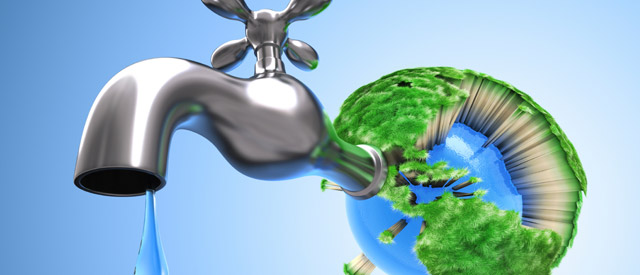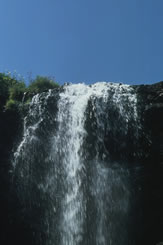 Morocco: Oum Er Rbia Sanitation Project
Morocco: Oum Er Rbia Sanitation Project
This project draws on community input to conduct environmental impact assessments related to land acquisition.
The donor community has pledged, through the Paris Declaration, to improve national ownership of international aid by supporting national country systems. The World Bank signed the Paris Declaration and the Accra Declaration on Aid Effectiveness, and in 2005 adopted a new guideline called the Use of Country System Policy. Progress on the use of country systems, however, has been slow. The use of country systems was successfully applied in the Middle East and North Africa (MENA) region in the area of environmental safeguards (for example to environmental assessments in Egypt and to the forestry sector in Tunisia), but it has not been applied to other safeguards.
The challenge has been primarily to conduct necessary assessments of existing country systems, and convince local stakeholders (such as local governments, and non-governmental organizations or NGOs) that improvements in these systems to conform with internationally-accepted approaches and principles would result in significant benefits.
Approach
A two-level assessment, called a Safeguards Diagnostic Review, was carried out in Morocco to assess existing practices and compare them to internationally-accepted good practices and principles. Furthermore, gaps and corresponding remedies had to be defined and agreed upon with the Moroccan authorities, in this case, the National Office for Potable Water.
The first level of the assessment consisted of an “equivalence assessment,” which led to an exhaustive review of the applicable body of local laws, and secondary regulations and official guidelines in the area of environmental impact assessment and land acquisition. The second level consisted of an “acceptability analysis” aimed at establishing how these procedures are actually being implemented.
Results
Environmental assessment results include:
- Establishment of procedures on how to prepare and implement environmental impact assessments;
- Establishment of procedures on how to review and approve environmental impact assessments at both the national and regional levels. Consultation practices have been clarified and disclosure will be generally ensured through the borrower’s and counterparts’ websites.
- The project also introduced environmental and social indicators for performance-based monitoring.
Social assessment results include:
- Clarification of expropriation procedures, including the determination of appropriate compensation levels and timing for payment, as well as public consultation and disclosure of information procedures;
- The establishment of grievance redress mechanisms to ensure that procedures for land expropriation for public use are applied in a consistent manner, including the prompt payment of compensation. These efforts also aimed to ensure that the acquisition of lands actually takes place after the compensation has been paid.
As a result, there is now more transparency and better public participation and consultation in addressing environmental and social safeguards around water sector projects in Morocco.
Bank Contribution
The World Bank financed the US$50,000 cost of conducting the Safeguards Diagnostic Review, which was made publicly available.
Partners
The Bank collaborated with several local entities in this endeavor including the Ministry of Interior, the National Office for Potable Water, Morocco State Secretary for Water and Environment, local governments, and local NGOs. Several donors including Germany’s KfW, France’s AFD, EC, and EIB were also consulted and involved in this pilot as part of their efforts to fulfill their commitments under the Accra Accords.
Toward the Future
Future water and sanitation projects in Morocco, financed by the Bank and by other donors, will benefit from this piloted use of country systems because environmental and social dimensions possibly affecting those projects will be addressed more consistently and effectively. This will enhance service delivery to project beneficiaries and improves the sustainability of such projects.
Beneficiaries
The beneficiaries are local communities in Morocco who will have a better opportunity to have their voices heard in matters of environment and social safeguards, especially as regards land expropriation for public use. This will in turn improve the level and quality of services to project beneficiaries.
-----
Read More
| Contact information | n/a |
|---|---|
| News type | Inbrief |
| File link |
http://web.worldbank.org/external/projects/main?Projectid=P098459&theSitePK=40941&piPK=73230&pagePK=64283627&menuPK=228424 |
| Source of information | World Bank |
| Subject(s) | DRINKING WATER , DRINKING WATER AND SANITATION : COMMON PROCESSES OF PURIFICATION AND TREATMENT , FINANCE-ECONOMY , HYDRAULICS - HYDROLOGY , INFRASTRUCTURES , POLICY-WATER POLICY AND WATER MANAGEMENT , PREVENTION AND NUISANCES POLLUTION , SANITATION -STRICT PURIFICATION PROCESSES , WATER DEMAND , WATER QUALITY |
| Relation | http://www.semide.net/countries/fol749974/country154256 |
| Geographical coverage | Morocco, |
| News date | 16/11/2010 |
| Working language(s) | ENGLISH |
 you are not logged in
you are not logged in





